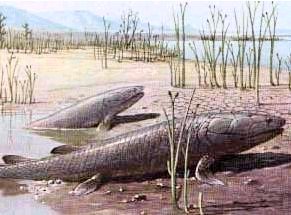And the most pointless. As you yourself just explained, the whole issue of colonization is MONEY.That may not be the method anyone favors, but it's more likely, as it is the most affordable.
Which means that, ultimately, the whole REASON for colonization is, also, money. The people going to colonize a new world will do so with the intention of creating a profitable enterprise off resources they find in their new home. How they expect to turn it profitable will depend on many things, not least of which is how they've planned their business model and what they expect to find when they get there. The overall point is they're going into space to make a profit, NOT to spread humanity for humanity's sake.
Embryos will not accomplish that, as there's no reason to send human beings -- let alone uneducated human beings who don't know how to do anything -- in order to make the colony profitable. Unless, of course, you're colonizing a world on behalf of a nearby alien civilization that considers human beings to be a delicacy, in which case the embryos are just livestock.
If you're running a business that requires a human presence, then you are sending experts in the field who will be able to run the business at a profit AND you're producing something from that colony that justifies the expense of sending them. But the purpose of colonization is not to spread civilization, the purpose of colonization is to create wealth.

 ).
).